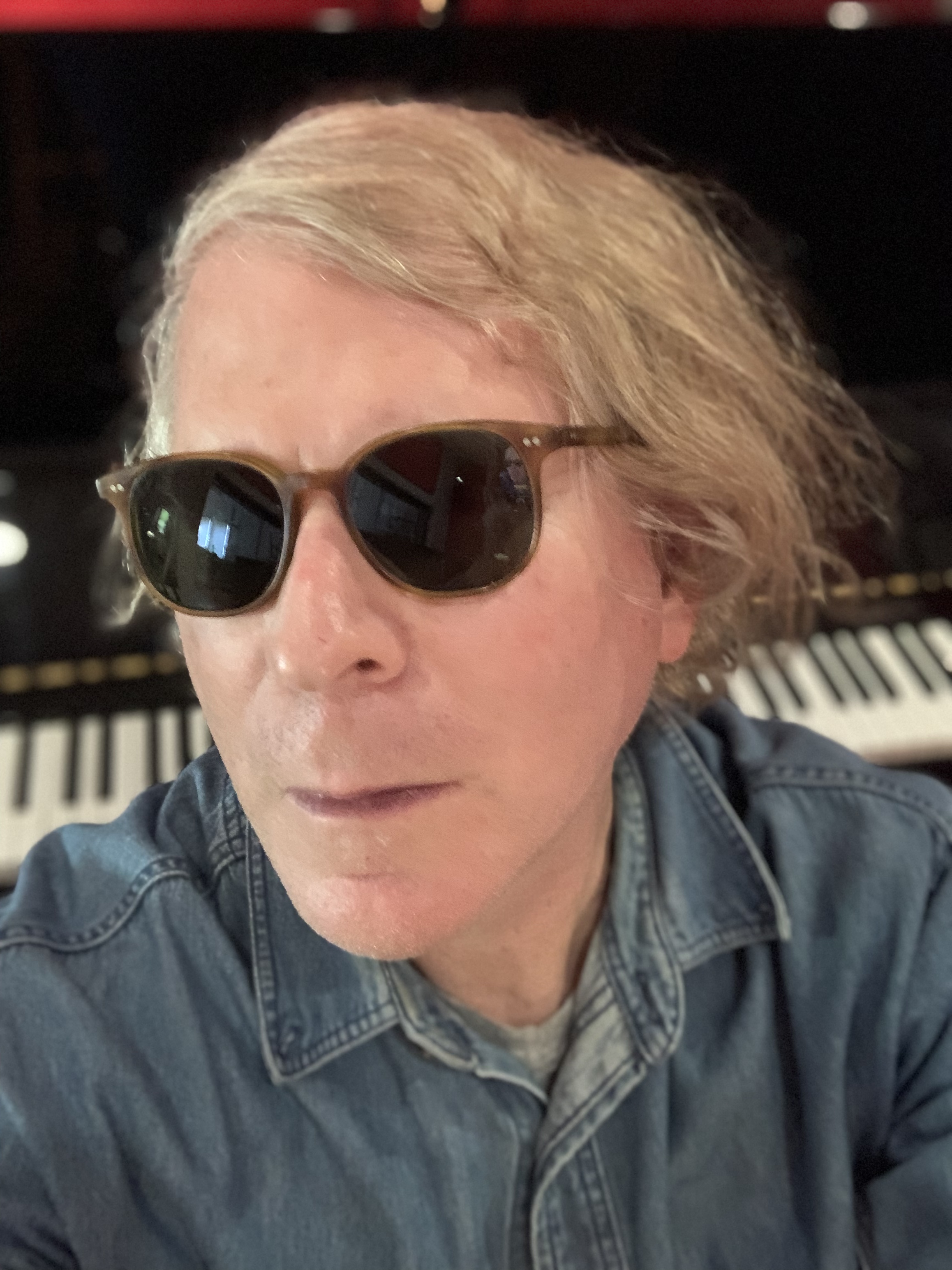Gatra Vina Presaging Pianoforte

Michael Robinson
gatra vina is the Sanskrit name for the human voice
Singing or scatting improvisatory vocalisms has long been a natural thing to do while out walking. Indeed, the regular movement of footsteps provides a handy rhythm section. Repertoire for this has been free improvisation, blues and jazz standards, mostly wordless, but sometimes including existing lyrics for particular songs. No doubt the highlight for this practice was when during a phone conversation with Lee Konitz, myself in Beverly Hills and him in Manhattan, I spontaneously suggested we trade vocal choruses on a song whereby I believe Lee surpassed even the famous Charlie Parker rendition - "Just Friends." Somehow I had the gumption to begin, and proceeded with a full chorus of vocal improvisation or scatting, followed by Lee. I was immediately struck by how much more emotional his singing was in comparison to his alto saxophone playing. In fact, I later learned how Lee had been a highly developed jazz vocalist prior to becoming a famous saxophonist. We continued on, each singing three choruses, and I marveled at how different Lee's improvisations were from what I believe is the greatest instrumental recording of "Just Friends", with Frank Sinatra, coincidently Lee's favorite jazz vocalist, having recorded my preferred sung rendering. During our vocal jugalbandi, which happened in late 2006 or early 2007, there was never an inkling how I would eventually translate my vocal improvisations into an instrumental language, beginning when there was extra time left over during a meruvina recording session. Wishing to make use of the opportunity, I decided to record some piano improvisations, the one track released to date from that moment in time being "Maria" by Leonard Bernstein and Stephen Sondheim. Lee and Leonard are connected both through friendship, having lived in the same Manhattan building at one time, and through music, Leonard telling Lee how the song "Cool" was inspired by his playing, not to mention how the generally attributed jazz influence upon the greatest show of all time is more specifically the jazz style of Lee Konitz, something Broadway commentators are understandably unable to recognize due to their inexperience with jazz. At first, I focused on using ragas for piano improvisation, together with free improvisation, the latter being an innovation of Lee' teacher, Lennie Tristano, whose music studio Bernstein and Aaron Copland were fond of visiting, transfixed by the brilliant innovations of the Italian-American pianist originally from Chicago, as was Lee. However, having settled into a weekly performance session on Sunday afternoons for a friend's mother consisting entirely of standards played as is with the melody and chords, I eventually began wondering if there was a way I might interpret these immaculate gem songs analogous to ragas in an individual manner moving past the ways they have been played a million trillion times emulating musicians like Bill Evans, McCoy Tyner and Chick Corea. Relying upon my vocal intuition for melodic development with the right hand, I instinctively turned towards adding an equally improvised left hand recalling a practice Lennie Tristano had favored at times as did Johann Sebastian Bach with his Two-Part Inventions, which I had memorized while a teenager. (Konitz and Warne Marsh had actually recorded alto and tenor saxophone interpretations of the Inventions.) Doing so was perilous at first, fully improvising with both hands at once, the left hand moving in the manner of a walking bass, accompanying the right hand melismas. I began developing a personal style informed by my jazz, Indian classical and European classical background. Related, my compositions for meruvina emanate from inner vocalisations captured by music notation. At several points while recording piano improvisations, surprising myself, I spontaneously began singing along with my right hand, though the microphones inside the piano didn't pick this up. While doing so, I recalled how Glenn Gould was fond of this joining. There is the thought that I may eventually add my singing, either with lyrics or inventing syllables for the melodies of the songs, while playing the piano. I was amused to discover my vocal register approximates that of Frank Sinatra! Both Pandit Jasraj and Harihar Rao told me I have a fine singing voice worth pursuing. I'm writing this while listening to the music of Italian composer Antonio Vivaldi over and over, so beautifully soothing and intellectually elevated at once, a true Pisces. - Michael Robinson, June 2022, Los Angeles
© 2022 Michael Robinson All rights reserved
Michael Robinson is a Los Angeles-based composer and musicologist. His 177 albums include 151 albums for meruvina and 26 albums of piano improvisations. Michael has been a lecturer at UCLA, Bard College and California State University Long Beach and Dominguez Hills.
|